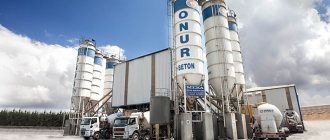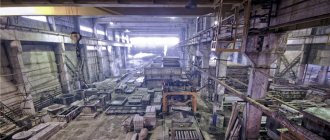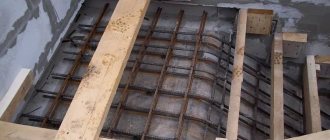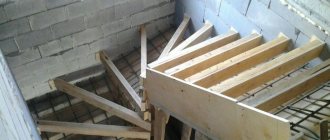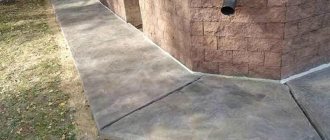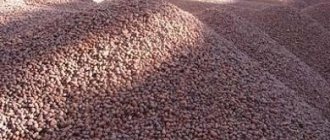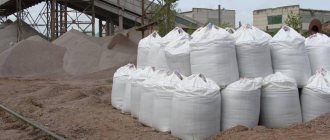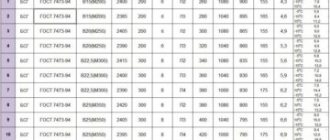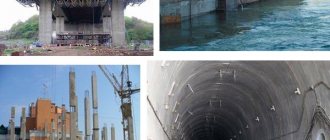Mobile concrete plant: concrete production on wheels. Currently, the construction industry is experiencing rapid growth, despite economic instability and the ongoing rise in energy prices. Modern construction is unthinkable without the use of concrete, since most construction projects are built using it. This building material has many advantages, including durability, ease of use and affordable cost of raw materials.
There are many highly productive, large-scale concrete production facilities operating throughout the post-Soviet space. These are, as a rule, large plants that produce concrete in large volumes, but sometimes this quantity is not enough to meet the needs of many construction organizations. It is this circumstance that has become the reason for the growing popularity and demand for mobile concrete plants.
By purchasing a mobile plant, a construction organization loses some of the headaches that cooperation with a third-party manufacturer of concrete mixtures guarantees. Today, more and more entrepreneurs at various levels are interested in the prospect of purchasing a mobile concrete plant, since modern mobile concrete plants are a universal, economical, and most importantly, profitable solution that contributes to the prosperity of the enterprise.
| Mobile concrete plant: types | Performance | Peculiarity |
| Trailer mobile concrete batching plant | from 10 to 240 cubic meters per hour | Transportation by tractor. Supply of inert materials by belt conveyor. |
| Trailed mobile concrete batching plant | from 10 to 240 cubic meters per hour | Transportation by truck, dump truck. Supply of inert materials by belt conveyor. |
| Transportable mobile concrete batching plant | from 10 to 240 cubic meters per hour | Transportation on the back of a truck. Supply of inert materials by bucket lift. |
| Containerized foundationless concrete plant | from 10 to 240 cubic meters per hour | A mobile baseless concrete plant, regardless of size and productivity, is economical and extremely convenient to transport. |
Mobile concrete plants are essentially a concrete production factory on wheels. A modern mobile concrete plant is available in three modifications: trailer-mounted, trailed and transportable concrete plants.
The main elements in the design of mobile concrete plants are: pumping equipment, cement silos, hot water supply systems, dispensers, engines, steam generators, pipelines, and other components. To increase working capacity, the elements that make up the mobile concrete plant are insulated with sandwich panels.
Currently, mobile concrete batching plants are attracting . A mobile concrete plant is modern, promising, convenient and comfortable. Concrete plants of this type are widely used in road construction.
A mobile concrete plant is a plant on wheels, thanks to which it can move in any direction and over any distance. As a rule, they are produced in three modifications - trailed mobile plants, trailer and transportable.
The use of mobile concrete production plants can significantly reduce production costs. The technological process is characterized by high environmental friendliness, i.e. does not harm the environment during the production process at the work site.
The main elements in its design of a mobile concrete plant include pumping equipment, a cement silo, hot water supply systems, dispensers, engines, steam generators, pipelines, and other components. To increase working capacity, the elements that make up the mobile concrete plant are insulated with sandwich panels.
The main advantages of mini-plants for the production of concrete
Concrete is the main building material; no construction site can do without it. Its binding functions are provided by cement - this is the main component of the concrete mixture. Its best qualities appear when it hardens, but it should only be used as a solution.
Concrete
In order to ensure a continuous construction process, concrete must be constantly prepared or transported by special machines - concrete trucks. It is not very convenient to prepare the solution in small volumes, but purchasing it from large factories, arranging delivery, or transporting it yourself is not cheap:
- cost of 1 m3 of concrete – 2500 rubles;
- car rental – 1200 rubles per hour;
- purchasing your own concrete truck – 3,000,000 rubles.
In such a situation, the best solution would be to purchase a mini-plant for the production of concrete. It has significant advantages over scale lines:
- mobile – can be easily transported and placed directly on the construction site.
Mini concrete production plant
Many models are placed on a platform that moves on wheels and looks like a trailer. - compact – it takes up no more than 5 meters in length and 3 in width; such a structure can be transported in one eurotruck;
- economical - waste-free production, accurate weighing system for raw materials;
- low cost - five times cheaper than a large-scale plant;
- there is no need to build a production facility - mini-factories can operate outdoors, even at -30°C;
- do not require a large number of service personnel - 1-2 workers are enough;
- short payback periods.
How does a mobile concrete batching plant work?
The essence of the work of such an enterprise is mixing components to obtain a building mixture.
The construction of large facilities and small-scale repair and construction work cannot be accomplished without the use of concrete. It is effective, from the point of view of finance, time, and quality, to use the MBZ, which can be purchased or rented, for the production of concrete mix. Modular structures are installed when stationary concrete plants are located at a considerable distance and the use of finished reinforced concrete products is unprofitable.
The production technology is based on mixing cement, inert aggregates, water and liquid additives. The proportions, composition and types of additives are selected individually for the facility under construction. Factories are divided into 2 types according to the type of production process:
- continuous;
- cyclic action.
The first ones work continuously, constantly producing products. The second - periodically, going through the main stages of production with repeating operations of loading components, mixing and shipping the finished product. The layout of concrete mixers can be nested or linear, depending on the number and type of special equipment. The first model involves placing from 3 to 5 mixers in one section. The second refers to one or two parallel lines of concrete mixers.
The mobile concrete plant is applicable in industrial and civil construction for the construction of buildings, structures, road works, and bridge construction.
Pros of mobile knowledge bases
- Mobility.
- Quick installation.
- Easily replaceable parts.
- High strength installation materials.
- A light weight.
- Compact package.
- Accommodation on a small area.
- Safety.
- Automated computer control system with one operator.
- 24/7 operation.
- All-season use.
- Profitability.
- Minimizing process downtime.
- Long service life.
- Fast payback.
Cons of MBZ
A crane is required to assemble some pieces of equipment.
- High price.
- Significant energy consumption.
- Mandatory supply of a three-phase network with large cross-section power lines.
- When assembling the trestle and cement silo, a crane will be required.
- Frequent loading of concrete mixture components.
When choosing an MBZ manufacturer, you should pay special attention to the mixer. The quality of the mixture produced and the efficiency of the production process directly depend on the mixing method. A mini-concrete plant should not be confused with a concrete mixer mounted on a truck chassis, which serves only for transporting concrete. The productivity of the installation is an important factor; it is not always necessary to purchase high-power equipment for the production of small volumes of concrete mixtures.
Famous manufacturers
Such efficient designs are produced by MEKA.
- Liebherr.
- SBM Mineral Processing.
- Ammann Elba EBD series.
- CEI Enterprises.
- SIMEM.
- "MEKA".
- Elkon Elkomix QuickMaster.
- ZZBO.
- PASSENGER 60.
- VOYAGER 60.
- Hartmann 50 MP.
- "Reference".
Mini-plant equipment
The concrete production technology is the same for both large plants and mini-installations. Therefore, the equipment has a standard set of components and mechanisms:
- main frame;
Mobile equipment for concrete production - skip hoist;
- bunker for aggregates;
- mixing device;
- electronic water dispenser;
- dosing device for bulk components;
- compressor;
- filter.
Various models may contain additional devices, for example:
- own heating system, if expected
Mini concrete plant on wheels
for year-round use; - operator cabin;
- components storage units;
- automobile chassis for ease of transportation;
- stationary platforms for installation of the entire production complex on them.
Most modern mini-factories are controlled using special programs; this eliminates errors, defects, and also reduces the share of manual labor.
Since active operation of the equipment is expected directly on the construction site, the entire structure is made of stainless or galvanized steel. This material has high anti-corrosion properties, thanks to which the equipment is not afraid of any weather phenomena or disasters.
Construction of concrete plants
Conclusion
Properly installing a concrete plant is not as easy as it might seem. Requires special skills, experience, and lifting equipment. It's better to entrust it to professionals.
Experienced specialists follow installation technology, take into account the nuances of installing concrete plants, have the necessary equipment, know what problems may arise during installation and understand how to eliminate them.
The TechnoTrust company is a large Russian manufacturer of Trumix mobile concrete plants. The company’s specialists will visit the installation site of the BSU, provide consultation, and help you understand the layout of the mobile BSU.
We provide guarantees for all types of installation work and supply spare parts for concrete plants in the shortest possible time.
Description of the most popular models
In Russia, mini-factories for the production of concrete of domestic, Chinese and European production are widely represented.
Mini concrete plant HZSY-50 (China). It has a fairly high productivity and is equivalent to large stationary plants. You can produce concrete not only for your own needs, but also for sale. Characteristics:
- power – 72 kW;
Mobile concrete plant model HZSY - productivity – up to 50 m3/h;
- mixer capacity – up to 1500 l;
- capacity of bunkers with bulk raw materials – 2 pieces, 7 m3 each;
- dimensions: length – 16.5 m;
- width – 3.5 m;
- height – 6.7 m;
Mobile plant Crocus Alfa from EUROMIX (Russia). Characteristics:
- power – 50 kW;
Mini plant from EUROMIX - productivity – up to 30 m3/h;
- mixer capacity – up to 800 l;
- capacity of bunkers with bulk raw materials – 3*15 m3;
- dimensions: length – 19 m;
- width – 6.5 m;
- height – 8.6 m;
Mini-plant Crocus 5/200 is the most compact option. Characteristics:
- power – 10 kW;
Crocus mini-factory - productivity – up to 5 m3/h;
- mixer capacity – up to 2 m3;
- dimensions: length – 2.9 m;
- width – 1.29 m;
- height – 1.9 m;
Mini-factory on wheels Fiori DB 460 CBV. Characteristics:
- productivity – up to 16 m3/h;
Mini plant Fiori DB 460 CBV - mixer capacity – up to 610 l;
- dimensions: length – 5.6 m;
- width – 2.43 m;
- height – 3.1 m;
Content
- Stages of installation work
- What is included in the package of a concrete plant?
- Conclusion
Professional installation of a concrete plant is a technically complex process that requires specific knowledge and experience. Installation work is carried out in stages:
- Assembly of BSU elements;
- Installation of assembled structures on a level area;
- Connecting all nodes into a single system;
- Connection, testing.
All work must be carried out extremely carefully, in a strictly defined sequence, in compliance with the rules for installing equipment. It is important to understand that after the mobile concrete plant has completed its service life at one site, it will need to be dismantled and transported to another.
Poor assembly and improper installation of the main components of a mobile concrete plant can lead to their premature wear and failure.
For high-quality assembly of BSU equipment, it is important to choose the right lifting equipment. The equipment used must correspond to the weight and dimensions of the concrete plant elements.
Installation of mobile concrete plants can be done on your own or with the help of specialists.
In the first case, the customer himself finds craftsmen and installs the BSU himself.
In the second case, delivery, assembly, and installation of the concrete plant are carried out by specialists from the manufacturer’s plant.
Regardless of the installation method, the installation of equipment must be carried out strictly according to technology. The quality of the assembly affects how correctly and efficiently the BSU will operate
from 1 rub. Factory TRUMIX-30 from 1 rub. Factory TRUMIX-60 from 1 rub. Factory TRUMIX-90 from RUB 530,000. Vibropress for rings
How is the production process carried out?
The production of concrete mixture occurs in three stages:
- preparation of starting materials:
Scheme of concrete preparation weighing; - transportation by belt to the mixer;
Using electronic scales, automatic dosing of bulk components is carried out. The first cycle lasts no more than two minutes, while sand, cement, crushed stone, water and various plasticizers enter the mixer.
Mixing concrete
Kneading is the main stage, carried out in a special mixer. This device can be of several types:
- rotary:
- planetary;
- rotary-planetary.
The most common version of the rotary mixer, it is a large tank with blades located inside that are driven by a motor. The number of blades depends on the volume of the mixer and can reach ten pieces. Mixing is carried out according to the selected technology and recipe for the concrete mixture. For powerful models, 100 seconds is enough, and the process begins from the moment the first components are poured into the mixer.
Unloading the finished mixture
Unloading the finished mixture is the final stage. Can be carried out in a special receiving hopper or in a vehicle. Unloading duration is 20 seconds.
One production cycle lasts no more than 5 minutes - even with a small mini-plant productivity, 50 m3 of concrete can be produced in one shift (8 working hours).
Why us?
The quality of any product depends on the professionalism of the performers.
Concrete ones are chosen for their impeccable quality, 100% efficiency, and high level of service. Our advantages:
- Reliability.
We have been manufacturing mini concrete plants for more than 5 years. During this time, we have gained an impeccable reputation among customers and partners. We fulfill our obligations in any situation. - After-sales support .
You will receive high-quality concrete equipment and a full package of accompanying documents. - Flexible pricing policy.
Buying a concrete plant from us is much cheaper than similar equipment from European brands. At the same time, the quality of our BSU is at a high level. - High level of care and service.
You don't have to waste time waiting. We will deliver, install and launch a concrete products plant anywhere in Russia and the CIS. We provide professional repair and maintenance services for BSU. - Individual approach to each client.
It is also possible to buy concrete plants from the manufacturer on lease. This will allow you to produce high-quality concrete for your own needs and sale without large financial costs.
offers to buy a Trumix concrete plant at a competitive price. The equipment consists of collapsible blocks. This allows you to significantly reduce transport costs. Our specialists will carry out professional installation, configuration and commissioning of the BSU.
For questions related to the purchase of a concrete plant or other equipment, call us by phone or leave a request on the website. Our manager will call you back and answer all questions
Materials used in production
The production process is simple; with high-quality equipment, high productivity can be achieved. But the main role is played by the quality of the product, since concrete is one of the main materials in construction. During production, you should not skimp on raw materials, but you should purchase from trusted suppliers.
To produce concrete you will need:
- Portland cement, grades higher than M-300 are suitable, preferably M-500;
Necessary materials for concrete production - crushed stone – gravel, the strength of which is 800–1000 kgf/cm2, or limestone. The most durable is granite crushed stone, it is used to make material that will be used in road construction;
- sand - you can use river sand, but washed from dust and clay impurities, as well as quarry sand;
- water - ordinary tap water or river water purified from impurities.
The classic proportion of all components is 1 part cement, 4 parts crushed stone, 2 sand, 0.5 water. But depending on the brand of cement, the proportions can be changed. In general, there are several dozen recipes; according to GOST, 7 grades of concrete are produced, each of which has its own unique composition.
GOST 18105-2010 Concrete
The manufacturer’s automated complexes already contain the basic recipes for the concrete mass, but it is possible to adjust them or add your own proportions.
Parameters and components of a mini concrete plant
A typical compact manufacturing plant consists of the following components:
- a frame on which the concrete mixing device is mounted;
- skip lift;
- bunker for placing aggregates;
- concrete mixing device;
- dispenser that regulates the supply of water and various additives;
- dispenser that regulates the supply of cement;
- a compressor that creates pressure in the supply system;
- filter element;
- cement silo.
Depending on the specific model and modification, the equipment may vary significantly.
If the production is intended for year-round operation, then the design contains various heating elements and sandwich panels for insulation (on the roof and walls).
It may also have its own heating system with coolant circulating in it. The cost of an all-season mini-plant is slightly higher than the usual summer version.
For example, the price of MP-20S, intended for year-round operation (manufactured by Metallist Promstroy), starts from 3.5 million rubles.
Business plan for production
To assess the profitability of a concrete production business using mobile mini-plants, you can draw up a preliminary business plan:
Business plan for a concrete production plant
Capital expenditures:
- cost of Crocus Alfa equipment – 3,415,000 rubles;
- the cost of a truck for transportation is 3,000,000 rubles;
- total – 6,415,000.
Performance Indicators:
- per hour – 30 m3;
- per shift (8 hours) – 240 m3;
- per month (25 working days, including Saturdays) – 6000 m3.
Cost calculation:
- cost of raw materials:
Growth potential of the concrete production market in Russia cement – 2800 rubles per ton * 4500 t = 12,600,000 rubles; - crushed stone – 1200 rub. for 1 m3* 470 m3 = 564,000 rubles;
- sand – 700 rub. for 1 m3* 285 m3 = 199,500 rubles;
Concrete can be sold at a price of 2500 per 1 m3.
Revenue per month will be 15,000,000.
Profit – 1,569,500.
The payback period is 12 months, provided that 30% of the profit (470,000 rubles) will be used monthly to cover capital costs.
If the mini-plant is used for your own needs, instead of renting a car and purchasing concrete from a large plant, then the economic benefits will be as follows:
- 6000 m3 of material is needed per month;
Payback of a mini concrete production plant - costs per month before purchasing a production line: cost of concrete - 2500 rubles * 6000 m3 = 15,000,000;
- delivery cost - car rental 9600 rub. per day * 25 = 240,000 per month;
The cost of the equipment will pay off after three months of operation.
